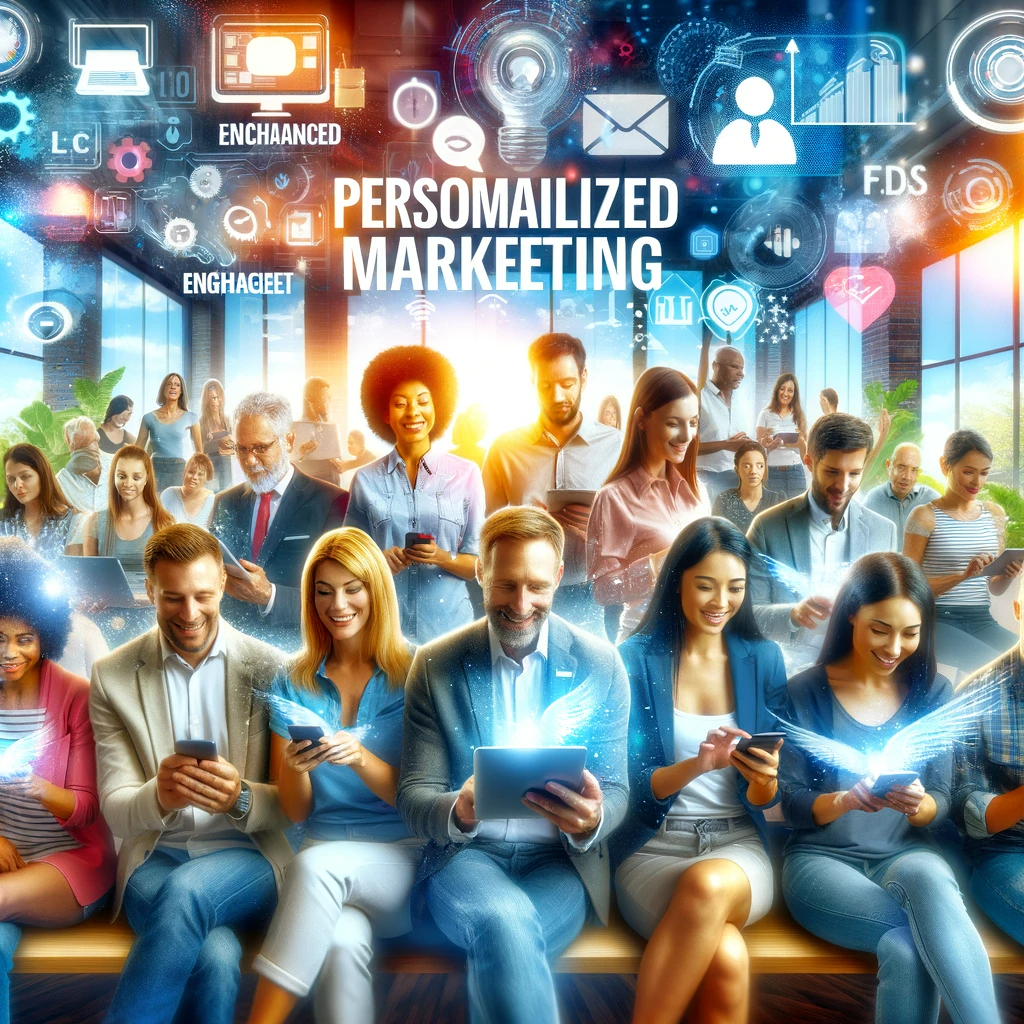Personalization in Marketing: Enhancing the Customer Experience

In the ever-evolving landscape of digital marketing, personalization has emerged as a game-changer. It’s the art of tailoring marketing strategies to individual preferences, behaviors, and interests, enhancing the overall customer experience. This approach is not just about addressing a customer by name; it’s about creating a bespoke journey for each individual, making them feel valued and understood.
Why Personalization Matters
The Changing Consumer Landscape
- Rising Expectations: In today’s digital age, consumers expect more than generic marketing messages. They seek personalized experiences that resonate with their unique needs and desires.
- Brand Differentiation: Personalization sets brands apart in a crowded market, establishing a deeper connection with consumers.
- Increased Engagement and Loyalty: Personalized marketing strategies lead to higher engagement rates and foster brand loyalty.
Data-Driven Personalization
- Leveraging Customer Data: Understanding customer data is pivotal for effective personalization. This involves analyzing buying patterns, preferences, and feedback.
- Technological Advancements: AI and machine learning play a significant role in deciphering this data, enabling marketers to create more targeted and relevant campaigns.
Implementing Personalization in Your Strategy
Understanding Your Audience
- Segmentation: Divide your audience into smaller groups based on similar characteristics or behaviors.
- Persona Creation: Develop detailed customer personas to understand and anticipate their needs better.
Personalization Techniques
- Customized Content: Create content that speaks directly to your audience’s interests and needs.
- Targeted Email Campaigns: Use customer data to send personalized emails that are relevant and timely.
- Tailored Recommendations: Offer product or service recommendations based on past purchases or browsing history.
Challenges and Considerations
Privacy Concerns
- Data Security: Ensure that customer data is collected and stored securely.
- Transparency: Be transparent about how customer data is used and give customers control over their data.
Finding the Right Balance
- Avoiding Over-Personalization: Too much personalization can feel intrusive. Find a balance that respects customer privacy while offering a tailored experience.
The Future of Personalization
Innovative Technologies
- AI and Machine Learning: These technologies will continue to advance, offering even more sophisticated personalization options.
- Voice Search and Personal Assistants: As voice technology becomes more prevalent, personalization in voice search and virtual assistants will be crucial.
Personalization in marketing is no longer a luxury; it’s a necessity. By understanding and implementing personalized marketing strategies, businesses can enhance customer experiences, leading to increased engagement, loyalty, and ultimately, business growth.
FAQs
- How does personalization improve customer experience? Personalization enhances customer experience by making interactions more relevant and meaningful, leading to increased satisfaction and loyalty.
- What role does AI play in personalization? AI analyzes customer data to create more accurate and effective personalized marketing strategies.
- Can personalization go too far? Yes, over-personalization can feel intrusive. It’s essential to find a balance that respects customer privacy.
- How important is customer data in personalization? Customer data is crucial as it helps understand preferences and behaviors, forming the basis of personalized marketing strategies.
- What’s the future of personalization in marketing? The future includes more advanced AI and voice technology, offering sophisticated and seamless personalized experiences.





